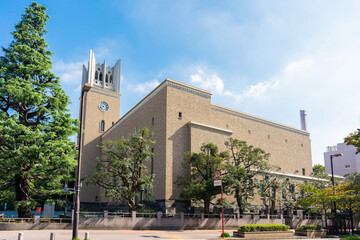Q/A BLOG
JOHN SCHUMAN’S FAMILY LAW BLOG
Here is where you will find ongoing up-to-date useful information on family law topics, such as separation, divorce, custody and access, child support, spousal support, property division, marriage contracts, family mediation and arbitration. This blog is designed to answer your family law questions, so look around.
This blog will answer a lot of common family law, divorce, separation, and parenting issues. If you are having trouble finding the information that you need, just use the search box on the left. It will help you find the answers you need to your family law or divorce matter.


All of the answers are provided by a practicing Ontario Family Law/Divorce Lawyer. However, note that small changes in circumstances can lead to a big change in how the law applies to the situation. It is always important to discuss your particular circumstances with an experienced family law lawyer. You can contact John Schuman at 416-446-5080 or by emailing him. For more information about how to contact John.
In addition to this blog, you can get a lot more information about Family Law in John Schuman’s book, The Guide to the Basics of Ontario Family Law, which is available from Amazon as a paperback or a $9.99 Kindle eBook, Kobo eBook, or iBook for your iPad or iPhone.
Don’t wait to get the Family Law information you need. Not knowing how the law works has gotten many people into serious Family Law trouble. Before your Divorce or child protection case goes wrong, find out how the law applies to you!
What Parents Need to Know About Private Schools and Education Law – Before Signing Their Kids Up!
In our education law practice, around half of our cases are on behalf of parents against private schools because the school did not meet the parent’s expectations, told a child to leave without good reason, or did not meet their child’s needs. This post is not intended to take a stand against private schools, especially those that our firm represents. Half of our cases on behalf of parents are against public schools. However, it is often the private school parents, not the public school ones, who have large misconceptions about how Ontario’s Education Act, or Education Law more broadly, apply to the schools their children attend.
The reality is that Ontario Private Schools do not have the same curriculum, rules or legally imposed standards that public schools do. The Ontario Government allows a lot more choice when parents choose a private education.

That is precisely the reason why parents pick Ontario Private Schools. Some parents do not want their kids taking sexual education classes, some don’t like the anti-bullying component that is mandatory in public schools, some parents what subject taught with a religious focus, some parents want schools that use permissible corporal punishment or other types of discipline that are not available in public schools, some parents don’t want their kids being taught along side kids that have special needs or are otherwise disadvantaged, some parents want teachers with qualifications that are different from the qualifications required by the Ontario College of Teachers or want their children to have teachers that are not confined by the standards of practice and ethics imposed by that body.
Choosing Private School is About Opting Out of Government Standards and Requirements
In choosing a private school, parents are choosing an education that is very different from that provided by public schools. This post is not about whether public or private schools are better because that largely depends on the specific school in either system. But, what many parents do not understand is that while it is NOT true that the Education Act does not apply to private schools, more than 95% of the Education Act does not apply. Further, the Ministry of Education does not regulate, licence, or otherwise oversee the day-to-day operation of private schools. The Ministry does not even inspect elementary schools or high schools that do not grant Ontario Secondary School Diplomas, even if those schools provide other diplomas such as the IB program.
The Ministry of Education provides a LOT of direction to public schools about how they will operate. It does this through the Education Act, Government Regulations and Policy and Procedure Memoranda that all set out exactly how public schools must do things. In most, if not all, circumstances, those directions are rooted in the latest research into best teaching practices. In several areas, the expectations placed on public schools are considered to be the best in the world. But private schools are not required to follow them.

To be clear, private schools do NOT have to follow the direction of from the Ministry of Education on areas such as:
- Discipline – including suspensions, expulsions or other forms of discipline
- Removing a child from his or her school
- Addressing the special needs of students
- Anti-bullying programs
- Specific curriculum content
- Student evaluation or testing procedures
- Communication with parents
- Participation in school activities
- Codes of conduct or dress code
- Vaccination or other health requirements or
- Record keeping
- Teacher or principal qualifications
If your child needs or would benefit from the specific standards or procedures set by the Ministry of Education, then you may want to look at public schools and even what you have to get your child into a specific public school.
Obviously, many private schools boast of having standards that exceed the requirements expected of public schools. However, there is no legislative nor government requirement that a private school even meet the standards in public schools. The Ontario Government is not going to step in to ensure that a child is being properly educated or treated at a private school and will look at the curriculum content only if the school wants to give the student an Ontario Secondary School Diploma.
Private School Standards Are Set Privately Between Parents and the School
That does not mean there are no legal requirements placed on private schools, just that those legal requirements do not come from the government. Instead, they come from the contract that the parents sign with the school. Like with End User Licence Agreements on apps and phones, parents tend to skip over these contracts assuming they have some form of standard terms, or that they are related only to payment of fees or other unimportant matters. But, those contracts set out what education parents can expect their children to receive and how the school will treat those children.

Private Schools Set Their Own Rules for Kicking Kids Out
Looking at specifics, one area where private school parents are often caught off guard is with regard to private schools kicking kids out. There are a lot of rules that public schools have to follow if they want to kick a kid out and public schools cannot just tell a kid not to come to school anymore. Private schools don’t have to follow any of those rules.
Private schools can force a student to leave based on what is set out in the contract. Most of the established private schools have contracts that essentially say “We can permanently remove any student from the school at any time, for any reason and we do not have to have a hearing or listen to the parents at all and we do not have to refund any portion of the tuition.” Parents usually just sign that contract without thinking about it. There are some schools that set out a procedure or say they will mirror the requirements placed on public schools by the Education Act, or that students can only be ejected for violating the code of conduct. However, most private schools do not have those sorts of terms in their contracts with parents. Instead, the private schools have contracts that allow them complete discretion as to when to remove students. Most private schools can even remove a student who is a victim of bullying or other acts because the victim student “does not fit in” or the aggressor students are more desirable.
Almost all private schools reserve the right not to readmit students for future academic years. That means they can literally say in June that they don’t want to see a student anymore in September, although that can be difficult if the school and parents have signed a new contract earlier in the year.
If parents do not like this possibility, they have to carefully read the contract and make sure they don’t enroll at a school where the contract will allow things to happen that they don’t like.
To be clear, our firm has done lots of cases where parents do not believe their child would be removed from the school. This can be because they went to the school themselves, or they have other children who are at the school or were at the school, or they cannot foresee any situation where a school would not want their child, or even because they have given the school a LOT of money. We have seen lots of cases where parents are absolutely shocked to learn that their child is no longer welcome at a private school and the school is using the terms of the contract against them.


When parents come to see us, we do have some remedies under contract law or human rights law and some other strategies we can try to fix the situation. You can make an appointment by calling 416-446-5847 or emailing us. But, the stronger the contract, the more difficult – AND EXPENSIVE – it will be to try to fix things. So, parents should review the contract carefully – and usually, the Code of Conduct that is incorporated into the contract – to make sure the contract meets their expectations and will not come back to haunt them if things go sour.
Admission Processes And Decisions Are Made By the School
We do understand that parents are often just glad that their child got accepted into a private school as it can be very competitive to get in and that it can be embarrassing when a child is not accepted into a private school. This is particularly true when it seems their child is not “up to snuff” or may have unique needs that are keeping them out. Private schools are private businesses so they can choose who they serve and who they do not – unless the decision violates the Ontario Human Rights Code. However many private schools have complex multi-stage admission processes that allow them to deny admission for reasons that are not related to a student’s traits that would violate the Human Rights Code. The last thing that most parents want to do is start questioning the terms of the contract when the school might just turn around and offer the place to another child.
Still, we see many parents who are not happy with a private school and where that school failed to meet their expectations. Parents do need to carefully read that contract. If what it promises is different from what parents expect, they need to consider whether that school is the right one. It can be difficult to fight what a school is doing, even when kicking a student out, if the school can point to their contract and say it is allowed under the contract, or our contract doesn’t require what the parents expect.

Grades and Academic Discipline
Giving out grades is one of the very few areas where the Ministry of Education does have expectations of private schools, but not in a way that really assists parents.
Private schools are required to have a policy about how they will communicate student achievement to parents. But how private schools communicate student achievement is entirely up to the private school. They can use the Ministry of Education standard report cards, but they do not have to do so. They do not even have to use formal grades.
However, to grant credit towards a course that will lead to an Ontario Secondary School Diploma, private schools must show that their evaluation of students is based on evidence of achievement of the provincial curriculum expectations, is conducted several times during a course and uses several methods for evaluating the student, as well as meeting other criteria.
When it comes to challenging whether an evaluation of a student was fair or accurate, there is no direct way to challenge a private school’s methodology. Many private school contracts specifically state that parents cannot, and will not, do that. Doing so will be, at best, difficult.
Similarly, there are no direct ways to challenge a school’s finding that a private school has acted with academic dishonesty or the method used in the investigation. Where a school makes such a finding and imposes consequences that are consistent with a Code of Conduct that has been incorporated into the contract with the parents, there is little that private school parents can do. If the consequences are severe for the student, they may want to consult with an education lawyer to see if there are any unusual or creative legal solutions available.
One course of action that might be available where the school imposed a grade or discipline that did not take into account a student’s special needs, is to pursue a remedy based on human rights grounds.
Private Schools Usually Do Have To Accommodate Special Needs
Ontario public schools have a refined process for identifying and providing assistance to kids. While, in most circumstances, private schools cannot refuse to admit a student because that student has special needs, they often find other reasons to refuse admission. However, once a student is in a private school, that school has to accommodate that child’s special needs to the point where it will cause undue hardship.
For very small, usually religious-based private schools, that are not-for-profits, and that charge very little for tuition and do not have much in the way of resources, the school may legitimately not be able to provide much accommodation for special needs. But larger schools can, and must, provide accommodation for student’s special needs. People cannot contract out of the Ontario Human Rights Code, so the contract is not a factor in those circumstances. If a private school student has a disability or needs some other type of special treatment or services, the private school cannot refuse to provide those accommodations if it is reasonably able to provide them. Private schools cannot refuse to continue to reach a student because that student has a special need that the school could reasonably accommodate.
While we often hear private schools say “We don’t do things that way”, or “Our standards do not allow us to provide accommodation”, the law says differently. Any parent faced with that sort of attitude should get advice from an education lawyer.
Bullying – It’s Up To Private Schools To Decide What To Do If Anything
One thing that can actually create special needs in a student is repeated bullying. Bullying can cause lots of long-lasting serious problems and is rarely character-building for the victim. It often leads to mental health problems that negatively impact a student’s ability to learn and the benefit of attending a private school. The Education Act and the Ministry of Education place a lot of legal obligations on public schools to prevent and address bullying. Those measures are based on the latest research into bullying and its effects.
There is nothing in the legislation or from the Ministry of Education that requires private schools to do anything about bullying. Again, that is an intentional decision by the government because some parents do not want their children exposed to anti-bullying programs and believe that bullying can be good for kids. They can choose to send their children to schools that allow or encourage bullying behaviour, hazing, peers teaching each other lessons, or other similar behaviour. Other private schools have very strict anti-bullying measures, some of which are modelled on what is required in public schools. Again, to a point, what a private school is legally required to do about bullying is set out in the contract with parents – to a point.
There can be legal consequences for a private school that allows bullying. When a school fails to supervise students properly, it can be liable for damages for mental or physical harm caused to a student. The law does not permit students, or the student’s parents, to consent to the student being seriously harmed. So, a school that says parents agreed to let their child be bullied will not be successful with that position in court. In addition, many types of bullying, anything that is based on disability, race, ethnic origin, family status, sexual orientation, gender or similar traits is a violation of the Ontario Human Rights Code. There can be penalties for institutions when bullying is also bigoted.
Since bullying can have a lot of serious negative repercussions, it can lead to mental or physical disabilities. Once a child has such disabilities, the child’s school is required to accommodate those challenges to the point of undue hardship. When those disabilities were caused by events at school, it is really difficult for a school to get away with saying that fixing a problem that it, in part, caused, will be too hard.


Private Schools Can Hire Whatever Teachers They Like, Regardless of Qualifications
Sometimes children run into trouble at private schools because one or more of their teachers or principals do not have any teaching qualifications and so do not know how to address certain educational situations or issues. Again, the Ontario Government made a policy decision to allow a broader range of qualifications than are required to teach in the public system, so there are no minimum qualifications for private school educators or administrators. In addition, private school teachers do not have to be members of the Ontario College of Teachers – in fact, they can’t be if they don’t have the qualifications to get a teacher’s license. If a private school teacher is not a member of the college of teachers, there is nobody to complain to about the competence or ethics of that private school teacher.
Some private schools do require their teachers to be members of the College of Teachers. But the private schools themselves are not required to use only licensed teachers unless their contract with their parents says so.
Conclusion
To summarize, it is important for parents to read the contract with a private school, which often incorporates a code of conduct and other documents or policies, before signing their child up to attend that school. Even if they feel they have no choice but to send their child to that private school, that contract tells them what they can expect, including the standards (if any) that will be applied to their child’s education. There are no mandatory government standards for how children will be educated in private schools in Ontario, or what the quality of that education will be. Parents can only hold a price school to the contract, and perhaps human rights legislation. If the school does not violate either of those, but the school does not meet the parents’ expectations, there will not be any government intervention and there may be few legal options – even if a child suddenly finds him or herself without a private school to attend.
If you need help with a private school problem or issue, email us, or use the form below to get in touch with an Education Lawyer. There are several at our office and you can reach them by calling 416-446-5847.
For more information about Ontario Education Law, and other education law issues, such as assistance for students with special needs and discipline such as academic sanctions, suspensions and expulsions, check out the Education Law section of this website.
Many thousands of people get family law assistance from this website every day. If you have found this page useful, please share it on your social network using the Facebook, Twitter, LinkedIn and Pinterest buttons at the bottom of the page. Please comment on this page using the comments section at the bottom to share your thoughts on the challenges students face at college or university.

Being Mean in Family Court Can Cost You – Potentially Millions
Recently, the Ontario Court of Appeal ordered a spouse to pay his spouse over a million dollars, but not in relation to property division child support, or spousal support. The husband had to pay those amounts in addition to over a million dollars that the Court ordered him to pay to his ex-wife to cover her legal fees. Yes, courts can order one spouse to pay all the costs for the divorce and surrounding litigation. Doing the right things after separation, and in Family Court can create big savings for a separated spouse while denying a “big win” for his or her ex.
There can be a lot of anger and other emotions in separation and divorce. Some separated spouses head to a lawyer’s office, or to Family Court, in the hope that they can force their ex to live in a box under a bridge. Some even expect that if they spend exorbitantly on legal fees for an aggressive lawyer, they can force their wives and children into homelessness. However, if a judge believes that is a spouse’s goal, the efforts can have the opposite of the intended result.
The recent Ontario Court of Appeal decision in Lakhtakia v. Mehra is not the first time that the Court has ordered one spouse to pay the other spouse’s legal and accountant fees totalling several hundred thousand dollars, even when doing so would cause financial hardship. Ontario Judges, especially Family Court Judges, will make a spouse whom a judge believes has acted unreasonably to pay all of their ex’s expenses in relation to the divorce, child custody or support proceedings. Rule 24(4) of the Family Law Rules authorizes such Orders. The rationale for this rule is, in part, to discourage separated spouses from acting vindictively toward each other, or to reward a spouse for acting appropriately when his or her spouse is not. It is also because these types of behaviours result in more court appearances, both conferences and motions, which not only increase the party’s legal fees and delay the matter but also clog up the court system. Judges feel that parties who do so should provide compensation for wasting everyone’s time.
Spouses who want to make things difficult for their exes often believe that their strategies are innovative and undetectable by the Court. However, judges, all of whom are former lawyers, sit in court every day, often hearing multiple matters every day, and possibly thousands of matters every year. They have seen many, many attempts to create unnecessary difficulties, and negative consequences for all involved.

In Lakhtakia v. Mehra and Knight v. Knight, the Court of Appeal set out many of the more common tactics that Family Court Litigants try use to gain advantage over their exes, but they frequently backfire:
- refusing or trying to hide necessary financial disclosure
- misleading the court, especially in relation to financial matters where objective evidence may disprove the representations
- refusing to negotiate or making unreasonable offers to settle
- either bringing needless motions, or forcing the other party to bring motions to get compliance with existing obligations under the Family Law Rules
- withholding the children or otherwise using the children to get leverage in negotiations
- refusing to pay appropriate child support immediately, even on admitted income – judges see this as an attempt to improperly get leverage by causing financial distress
- otherwise running up the opposing party’s fees and expenses unnecessarily
- refusing to follow court orders
- trying to intimidate the other party through threats of embarrassment, financial difficulties or physical force
Judges who see a separated spouse or parent using these types of tactics will not hesitate to order them to pay all the legal fees and expenses that the other party incurred to rectify the situation.
In the March 2021 changes to the Family Law Legislation, the Federal and Ontario Governments created specific laws to stop separated parties, and especially parents, from engaging in activities that are only designed to harm a former spouse or co-parent. Under section 7.2 of the Divorce Act and section 33.1(2) of the Children’s Law Reform Act, parents have a specific legal duty to protect their children from any conflict related to the separation. Those new laws also require separated spouses and parents to try to resolve matters through negotiation or alternative dispute resolution and avoid Family Court wherever possible. Judges really do expect people to treat each other civilly and try to resolve matters on a reasonable basis after they separate. Serious consequences, including heft orders for the payment of costs to the other party, are the result when someone chooses to be vindictive, or even unreasonable.
Separated spouses and parents who want to get the best out of their former partner in Family Court need to find an excellent Family Law Lawyer and listen to that lawyer’s advice. The road to success does not involve underhanded, coercive, or dishonest tactics. Judges are likely to pick up on those and punish the guilty party. The best strategy to see an ex beaten down, if not destroyed, in Family Court, is to be seen as the reasonable, cooperative, caring party while the other allows the other party to seem mean or vindictive. This does not mean rolling over and giving away everything – judges don’t think that is reasonable either. But it does mean getting some advice from a lawyer about how to appear reasonable while working towards the best possible outcome. That can be a difficult tightrope walk, especially in the winds of emotion that come after separation. The best lawyers will tell you what the realistic outcomes are, and how best to achieve them, which may involve avoiding Family Court altogether, rather than going off on an aggressive attack that is doomed not only to failure but to result in serious repercussions, maybe even an easily avoidable costs award of thousands, or millions of dollars, to help a former partner.
To get the best advice, specific to your situation, you should speak to a family lawyer. Certified Specialist in Family Law, John Schuman, is known for his concern for children in separation and divorce and has won many child custody cases. To contact John call 416-446-5847, email him, or fill out the form below. You can use the same form to comment on this page.
This page only provided a quick mention of many complicated family law topics. You can get a lot more information about Ontario Family Law issues, including a comprehensive explanation of child support, spousal support, property division, and most other common family law issues by downloading this $9.99 Kindle eBook, Kobo eBook, or iBook for your iPad or iPhone or ordering it from Amazon as a paperback. But to understand how the law works precisely in your situation, it is always best to speak to a good Family Law Lawyer.
Many thousands of people get family law assistance from this website every day. If you have found this page useful, please share it on your social network using the Facebook, Twitter, LinkedIn and Pinterest buttons at the bottom of the page. Please comment on this page using the comments section at the bottom to share your thoughts on the best ways to resolve matters for your children after a separation.
FREQUENTLY ASKED QUESTIONS

Contact Us
To contact John Schuman, Certified Specialist in Family Law, call 416-446-5847, email him at john.schuman@devrylaw.ca, or use the form on this page.





















